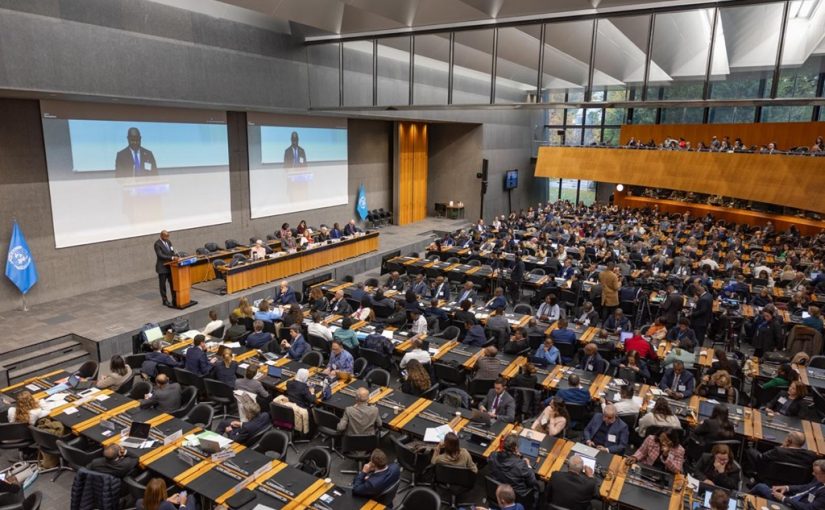Mozambique: Former Renamo guerrillas released - DW
Mozambique: Investment in early warning “is investment in hope”

Photo: Presidency of the Republic of Mozambique
Mozambican President Daniel Chapo on Monday stressed that investment in early warning systems is “an investment in hope, in dignity and in human sovereignty”.
Speaking in Geneva, at a high level meeting on “Early Warning for All”, at which he was the main speaker, invited by the General Secretary of the World Meteorological Organisation, Andre Celeste Saulo, Chapo described climate change as “a present and devastating reality”, noting that the World Bank has described Mozambique as “among the three African countries most vulnerable to the effects of climate change”.
Extreme weather events such as cyclones had displaced entire Mozambican communities, destroyed infrastructures, and “robbed the Mozambican people of their dreams”. But the country “had learnt a fundamental lesson – timely alerts save lives”.
Mozambique, Chapo said, has taken “a position of regional leadership in the integration of early warning systems while placing climatic resilience at the top of the national political agenda”.
Despite the advances made, climate funding in Mozambique “is still limited”, said the President, “and the state budget is not sufficient to finance a growth model resilient to global climate change”.
Chapo called for “new public-private partnerships, innovative and accessible financing mechanisms, and the reaffirmation of shared responsibility between nations and multilateral institutions”.
The climate crisis, he said, “is the greatest test of our collective awareness as human beings. Science has given us the tools and technology has shown us the path. What is missing is the moral and political undertaking to leave nobody behind”.
The increased frequency and intensity of extreme weather events, Chapo added, is compromising achievement of the United Nations Sustainable Development Goals (SDGs).
“Waves of extreme heat, tropical cyclones, prolonged droughts, and sudden floods are changing ecosystems, economies and ways of life particularly in developing countries who have contributed least to this crisis”, he said.













Leave a Reply
Be the First to Comment!
You must be logged in to post a comment.
You must be logged in to post a comment.